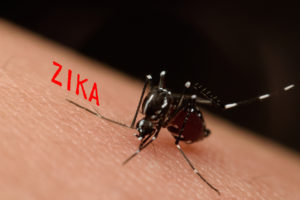
The Zika virus continues to make headlines, edging out the harder-to-pronounce and even more painful Chikungunya, which, by the way, is still an issue. Mosquitoes are the culprits in both cases (though Zika can also be transmitted human-to-human) and neither responds to vaccines or medications—the only treatment is rest, fluids and acetaminophen for joint pain. Not an enticing proposition by any means. So what’s a traveler to do? One word: prevention.
According to the Center for Disease Control, these nasty little bugs are mainly active during the day and at night when the lights are on, so even more than mosquito netting over your bed (not a bad idea) when you’re in problem areas, they recommend the following:
- Keep them out of your home or hotel room by using the air conditioning and window/door screens (if you can’t, pull out the mosquito netting)
- Ensure there is no standing water outside your home or hotel
- Weather permitting, wear long-sleeved shirts and long pants
- Use insect repellents liberally. If you’re going to use both sunscreen and insect repellant, apply the sunscreen first. Do not spray repellent on skin covered by clothing.
- Treat clothing with permethrin (avoid contacts with skin and eyes). Follow instructions closely.
How do you know if you have Zika?
The symptoms of Zika are somewhat milder than those of the Chikungunya—which can be severe and disabling—but they can nonetheless be very significant, particularly if the patient is pregnant (the virus has also been proven to be transmitted via sexual contact, so please take precautions). If you’ve traveled to a known problem area, be on the lookout for:
- Fever, rash, joint pain or red eyes (conjunctivitis) appearing within two weeks
- Muscle pain or headache
- Mild illness usually lasting for several days to a week
- Patients usually don’t get sick enough to be hospitalized and very rarely die of this disease
Treatment mainly involves plenty of rest and fluids, plus acetaminophen or paracetamol to reduce fever and pain.
So should you cancel your trip to the Caribbean or Latin America? If you’re a healthy adult, the answer from most clinicians is a “no,” but they recommend avoiding mosquito bites with the appropriate precautions (see above). However, if you’re immunocompromised, are pregnant or are trying to get pregnant—or have young children—then the CDC’s advises reconsidering your trip. If you’re already traveled and are actively seeking a baby, experts suggest waiting two weeks before you try to ensure you or your partner don’t have the virus.
If you do cancel your trip, check with your travel agent or directly with the airline: as they might be offering refunds.
So be careful (and choose another destination if you’re pregnant), arm yourself with the facts, and put those vacation days you’ve been saving up on the calendar!
Need some advice on where to go? Check with your travel advisor—and don’t leave home with your SkyMed membership!







